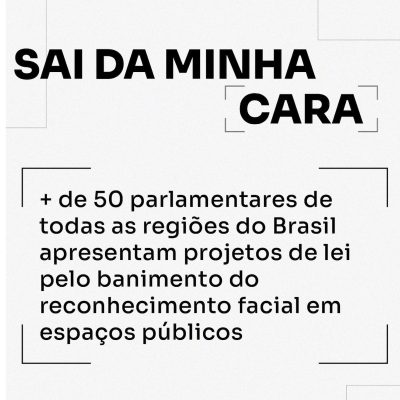“In dossierveillance, the dossier is a tool of control that compels individuals to self-censor, to restrain themselves and act in ways that are aligned to the demands of the regime in power”
Cristina Plamadeala holds a PhD in Humanities from Concordia University (Canada) and in Philosophy from the École des Hautes Études en Sciences Sociales in Philosophy (France). Founder and coordinator of “The Dossierveillance Project“, Plamadeala investigates how the production of archives plays a central role in regulating the behavior and conduct of individuals and populations. Under the concept of “dossierveillance”, she examines how, historically and in the contemporary surveillance culture, these archives have the potential to make people afraid to act in certain ways or to disclose certain information that can be used against them.
Plamadeala is one of the editors of the volume “Surveillance and the dossier: record keeping, vulnerability and reputational politics”, to be published by the University of Toronto Press. The volume also includes as editors Ozgun Topak (York University/Toronto) and Rafael Evangelista (Labjor/Unicamp and Lavits) – the complete CFP can be seen here. In this interview to Lavits, the researcher discusses the concept of dossierveillance, the investigation she carried out in the archives of the secret police of Romania during the country’s communist period, the current characteristics of dossier surveillance and details the most important topics of the CFP.
Lavits: Can you tell us a little bit about the concept of dossierveillance? What is the historical background?
CP: I came up with this concept while pursuing my doctoral studies at Concordia University (Montreal, Canada) and at Ecole des Hautes Etudes en Sciences Sociales (Paris, France). My thesis sought to explain why people collaborated with the Securitate, Romania’s secret police during the communist period. My research was based on the study of Securitate files or dossiers that were produced on the people the Romanian secret police targeted for recruitment or placed under surveillance. During the study of these files, as well as in the process of consulting memoirs written by Romanians who lived under such circumstances, I began to recognize the immense power the Securitate fie had on those it targeted for recruitment, on those who were under surveillance and those who thought they were but had no file, in reality! The file was like a phantom, a specter that haunted people, including those who worked for the Securitate. They too had files compiled on them.
The Securitate managed to instill fear in people via these files. The mere thought of doing something that may have caught the attention of the secret police and thus compel it to open a file on a given person or to add to the already existent file a series of incriminating facts most definitely deterred people from doing anything rebellious.
From this realization came the desire to give a name to the phenomenon described here, which is a method of terror employed by the Securitate and, by extension, by the Romanian communist regime to control its population. The term was first coined in a book chapter published in an edited volume entitled Making Surveillance States. In dossierveillance, the dossier is the disciplinary Foucauldian tool of control that compels individuals to self-censor, to restrain themselves and act in ways that are aligned to the demands of the regime in power.
The striking part of this phenomenon is that it needs no dossier for it to work! The mere imagination of the individual suffices for it to hold power on a given person—the belief that such an incriminating file may exist can be sufficient for someone to censure oneself or become docile and be afraid.
Lavits: What are the characteristics of dossierveillance in contemporary surveillance culture?
CP: This concept is relevant not only to the study of totalitarian regimes. In contemporary surveillance societies, workplace dynamics, for example, can involve elements of dossierveillance. Anytime one is reluctant to write a harsh email to a colleague out of fear of leaving a paper trail that may end up jeopardizing one’s promotion, for example, one experiences dossierveillance.
Pregnant or post-partum women who are dealing with mental health issues yet who are afraid to disclose their struggles to the medical staff out of fear of being seen as bad mothers or having their children being taken by social services for being deemed as unfit to take care of their children represent another example. In fact, anytime one is afraid that disclosing a certain information about them can harm them in the future, should that information be stored somewhere and be employed by someone against that person, one is experiencing dossierveillance. The key symptom of dossierveillance is exercising self-restraint or self-censoring about disclosing potentially incriminating information.
For more detailed description of this this concept its relevance to contemporary surveillance culture, one can access the Dossierveillance Project which I set up in 2020.
Lavits: What changed with the internet? Now we all have files on our behavior, tastes, localization and general internet activities, including political activities. Can we say that what was usually done by governments now is done also by corporations? In this sense, can we say that big techs are a type of collaborator in state surveillance?
CP: The Internet made the process of creating files a lot more easy and more efficiently. The Internet, also, made us co-creators of such files. Indeed, every-time we log on on the Internet we are helping create files on us: social media files, email files, files on our purchasing habits, our tastes, likes and dislikes, and so on. While the information we leave behind may seem rather innocuous, the fact that we leave so much information on us should not be taken lightly. Corporations are storing this information for capital gain. Plenty of scholarship has been already written on this very subject. As for the question of whether big techs are collaborators in state surveillance, I would challenge the word collaborator here, and replace it with the idea of ‘partaking in surveillance of citizens.’
Lavits: What is the type of contribution you are expecting from the CFP? Can you highlight what you think are the most important topics?
CP: This Call for Papers is an invitation to scholars and activists alike to reflect on the relevance of dossiers and, by extension, of dossierveillance, in contemporary surveillance societies. Chapter topics may include but are not limited to the following:
The self-generated dossier
Performativity and the dossier
China’s social credit system and the dossier
Surveillance capitalism and the financial dossier
Global south, new democracies and the political dossier
From slavery to racialized facial recognition systems
Histories of dossierveillance
Workplace surveillance and the dossier
Patient-Doctor relations, disease management and the dossier
Data motility, the dossier and the digital archive
Vulnerability, risk and the dossier
Art, surveillance and the dossier
Disease management, disability and the dossier
Policing and the dossier
The constitution of disability and the dossier
The dossier and migration (such as border control mechanisms, identification systems, etc.)
Criminology and the dossier
Cyber crime and the dossier
We encourage submission from scholars in surveillance studies and beyond, whose subject of research may be looked at/reexamined through the lens of the questions asked in this call for papers. We especially encourage submissions that are based on scholarly works that explore themes such as gender, class, immigration, sexuality, illness, disability, and race and racialization.


